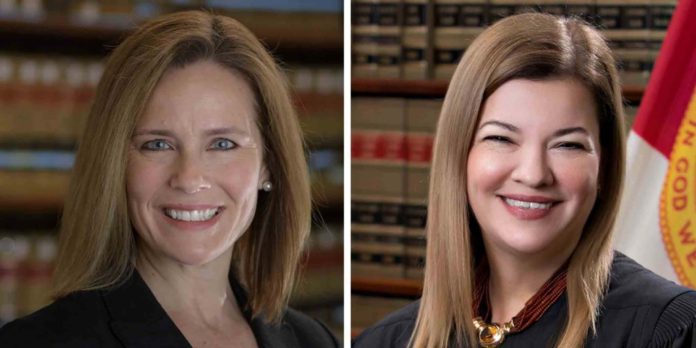After the death of legendary Supreme Court Justice Ruth Bader Ginsburg, many have asked the question, “Who will replace her seat on the court?” While this question will certainly provoke political discourse and feud before the election, it is almost certain that with a Republican President and Republican majority, a nomination will be voted on in the Senate Chamber.
In order for Trump to appoint a replacement for RBG, he must have a majority vote from the Republican-controlled Senate. Hours after Ginsburg’s death, Senate Majority Leader Mitch McConnell stated that Trump’s nominee will have a vote on the Supreme Court. However, as many Republican Senators are in toss-up races in their respective states, they are being pressured by their constituents to withhold a vote for the nomination. There is virtually no scenario in which the Democrats can stop the nomination process from proceeding, with Democratic House Speaker Nancy Pelosi stating that Democrats will use “every arrow in our quiver” to stop Trump’s nominee.
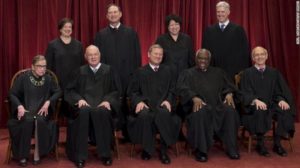
While Trump previously tweeted out a shortlist for Supreme Court nominees prior to Justice Ginsburg’s death, the spotlight has quickly shifted to a shortlist of females, as Trump has stated that the nominee will “most likely” be a female.
Amy Coney Barrett
While Barrett’s name has been previously mentioned as a possible nominee, Trump reportedly told top advisers that he was “saving Barrett in case Ginsburg stepped down.” The US Court of Appeals for the 7th Circuit Judge was first appointed by Trump in 2017.
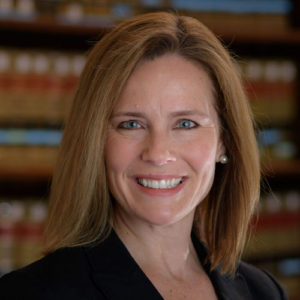
Her Notre Dame Professor Profile reads: “Before joining the Notre Dame faculty, Judge Barrett clerked for Judge Laurence H. Silberman of the U.S. Court of Appeals for the D.C. Circuit and for Associate Justice Antonin Scalia of the U.S. Supreme Court. As an associate at Miller, Cassidy, Larroca & Lewin in Washington, D.C., she litigated constitutional, criminal, and commercial cases in both trial and appellate courts. Judge Barrett has served as a visiting associate professor and John M. Olin Fellow in Law at the George Washington University Law School, as a visiting associate professor of law at the University of Virginia and is a member of the American Law Institute (ALI).”
Barrett is heavily devoted to her Catholic faith. “Her religious convictions are pro-life, and she lives those convictions,” said Judge Patrick J. Schiltz, a longtime mentor and a U.S. district judge in Minnesota, who similarly to Judge Barrett is Roman Catholic. “The question of what we believe as a religious matter has nothing to do with what we believe a written document says.” Judge Barrett and her husband have seven children, including two adopted from Haiti and a young son with special needs. Currently, she resides in South Bend, Indiana, and is described by a colleague as “radically generous and hospitable.”
Peers describe her as a textualist like Justice Scalia, interpreting the law based on its plain words, as opposed to someone who looks to accomplish the legislature’s purpose. Barrett can also be described as an originalist, meaning a judge who interprets the Constitution according to the understanding of those who drafted and ratified it.
At 48 years old, Barrett is certainly a young candidate for the Supreme Court’s bench, making her the youngest justice on the court and suggesting that her jurisprudence will linger for generations to come in the lifetime appointment. Furthermore, if nominated and confirmed, Barrett would be only the fifth woman to serve on the Supreme Court, joining Justices Kagan and Sotomayor.
Judge Barrett was seen at the White House on Monday, September 21st, meeting with President Trump. Trump stated, “She’s highly respected, I can say that.” Judge Barrett is the frontrunner among a narrow field of candidates for the vacant Supreme Court seat.
Barbara Lagoa
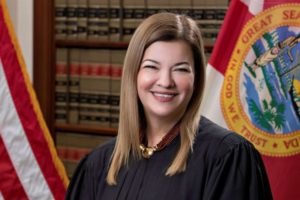
Lagoa, a Cuban-American federal appellate judge, is the first Hispanic woman to serve on the Florida Supreme Court. If nominated and confirmed, Lagoa would become the second Latina to serve on the Supreme Court. President Trump nominated Lagoa to serve on the 11th Circuit Court of Appeals, which she was later confirmed by the Senate by a bipartisan vote of 80 to 15, a contrast to Barrett’s confirmation to the 7th Circuit of 55 to 43.
After graduating from Columbia Law School, Lagoa worked as a pro bono lawyer for Elian Gonzalez’s family and later as a federal prosecutor. Lagoa then spent more than a decade as a judge on a Florida appeals court before being picked by Gov. Ron DeSantis to serve on the state’s supreme court. “She has been the essence of what a judge should be,” DeSantis said when he nominated her.
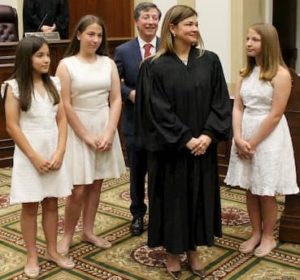
Married with three daughters, Lagoa’s Cuban roots might attract Trump’s call to Florida voters, a battleground state for the upcoming election. Many argue that Lagoa’s lack of experience in federal court could be a detriment to her ability to hold a seat in the nation’s highest court.
Justin Sayfie, Lagoa’s colleague and friend of over 20 years, stated “I think the world of her. I have great admiration for her as a judge and personally. She’s an incredible daughter for her parents, great wife for her husband, and amazing mother for her children.”
The Nomination
During a Tuesday interview on Fox, Trump stated, “I would say that I’m very close to making it a decision in my own mind and I’m going to reveal it on Saturday. I’m doing that out of respect for Justice Ginsburg, you’re having a service on Thursday, so I didn’t really want to do anything to cut into the service.”

Chairmen of the Senate Judiciary Committee, Lindsey Graham, affirmed that the Republican majority would have the votes, with the consideration of Republican Senators Murkowski and Collins who have urged against a nomination process, to confirm a Supreme Court Justice before the election.
“We’ve got the votes to confirm Justice Ginsburg’s replacement before the election. We’re going to move forward in the committee. We’re going to report the nomination out of the committee to the floor of the United States Senate so we can vote before the election,” Graham told Fox News.
Whether it is Lagoa, Barrett, or another of Trump’s shortlist candidates, the political discourse of a Supreme Court nomination will certainly be a major headline of the 2020 Presidential Election.


